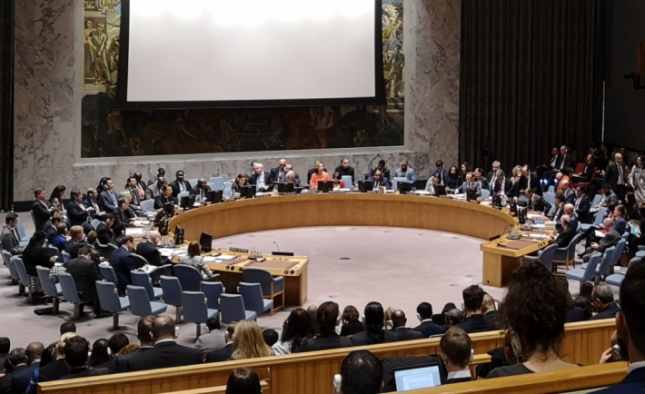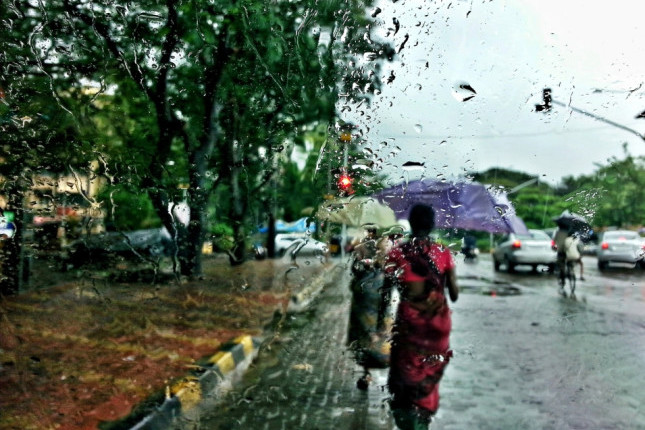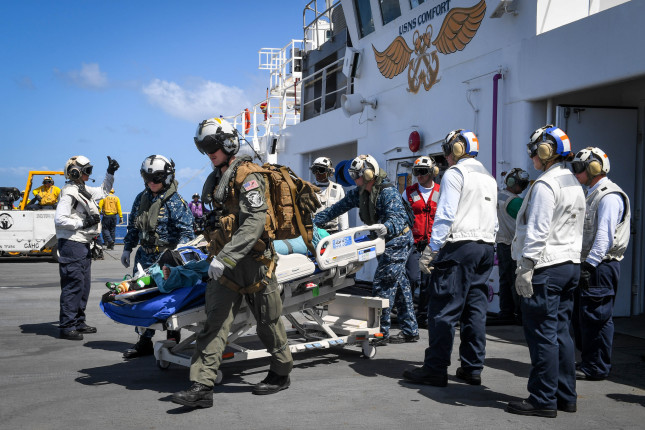-
COVID-19 Reignites Interest in Scenario Planning for Development … But Will It Last?
›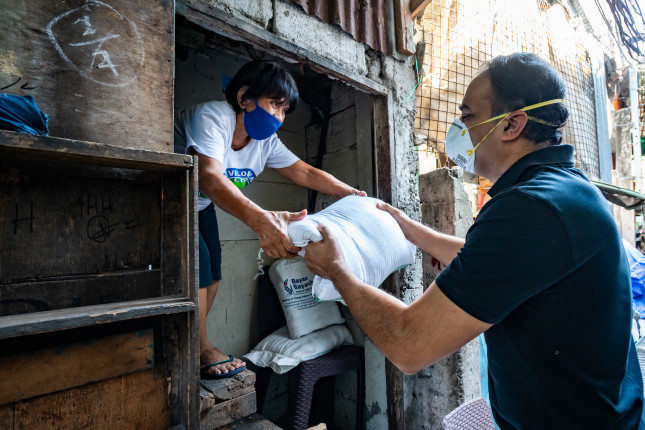
Not since COVID-19 burst onto the scene a few months ago have so many individuals and institutions, outside the business, military, and intelligence communities, woken up to the need for a smart way to characterize and communicate uncertainty. The overwhelming choice for many is scenario planning. Today, scenario planning applies to a wide spectrum of issues, not just international development. It has been used to anticipate changes in higher education, rethink workforce composition, and explore options for individual financial planning.
-
The COVID-19 Pandemic and Vulnerable Populations: A Wilson Center NOW Interview with James Hollifield
›
Refugees and migrants are the most vulnerable and will bear the brunt of the Covid-19 pandemic, said James Hollifield, a Wilson Center Global Fellow, in a recent episode of Wilson NOW. These populations are often already at higher risk due to insufficient water and food supplies, and those confined in large camps are at greater risk of spreading the disease. According to Hollifield, although we have not yet seen the full extent of the damage, “we can see with both refugees and migrants in particular, especially seasonal migrants, that there’s a great danger here of the virus spreading like wildfire in the camps and in the dormitories.”
-
Why Climate and Conflict Are Shaping the Crises of Our Time (And What To Do About It)
› Humanitarian need is increasing. Crises are becoming more complex through the interactions between climate change, disasters, and conflicts. Not only are humanitarian crises on the rise, but the nature of crises is changing, largely due to climate change-driven extremes such as floods, droughts and typhoons. Over 90 percent of disasters are believed to be related to climate.
Humanitarian need is increasing. Crises are becoming more complex through the interactions between climate change, disasters, and conflicts. Not only are humanitarian crises on the rise, but the nature of crises is changing, largely due to climate change-driven extremes such as floods, droughts and typhoons. Over 90 percent of disasters are believed to be related to climate. -
Disasters Have Changed. So Must Our Response.
› As disasters have changed over the years, so must the personnel who manage these crises.
As disasters have changed over the years, so must the personnel who manage these crises.In 1932, sociologist Lowell Carr first described a predictable pattern of how disasters impact society. Refined over the decades by many researchers, the “disaster cycle” includes four phases: prevention, preparedness, response, recovery and rehabilitation.
This disaster cycle helped define the way societies respond to each disaster. Today, highly trained emergency personnel using many research, management, and epidemiological skills have helped improve survival and health outcomes after disasters. “Disaster medicine” now defines a sub-specialty for highly skilled professional health specialists. However, their many activities and skill sets primarily focus on only the response phase of the initial disaster cycle.
-
Environmental Security Risks: How to Plan for Disasters in the Face of Uncertainty
› How do we plan for disasters that have never occurred before? One million species are at risk of extinction in the near future from environmental changes. The frequency of historic tropical storms is increasing. The rapidly melting permafrost in the Arctic is placing unprecedented pressures on northern infrastructure. Given the overwhelming and unpredictable nature of new disaster risks, it is not clear what the appropriate responses should be. Our book, Disaster Security: Using Military and Intelligence Planning for Energy and Environmental Risks, addresses how to assess unique environmental hazards and disaster risks, based on tools used by the U.S. intelligence and military communities. The book draws on lessons learned from developing, applying, and translating scenarios and simulations (or wargames) to plan for future environmental security risks.
How do we plan for disasters that have never occurred before? One million species are at risk of extinction in the near future from environmental changes. The frequency of historic tropical storms is increasing. The rapidly melting permafrost in the Arctic is placing unprecedented pressures on northern infrastructure. Given the overwhelming and unpredictable nature of new disaster risks, it is not clear what the appropriate responses should be. Our book, Disaster Security: Using Military and Intelligence Planning for Energy and Environmental Risks, addresses how to assess unique environmental hazards and disaster risks, based on tools used by the U.S. intelligence and military communities. The book draws on lessons learned from developing, applying, and translating scenarios and simulations (or wargames) to plan for future environmental security risks. -
Security Council Debates how Climate Disasters Threaten International Peace and Security
›
On 25 January 2019, the UN Security Council held an open debate to discuss the security implications of climate-related disaster events. The meeting, initiated by the Dominican Republic, underscored the global nature of climate-related disasters. Most speakers highlighted the need for better climate risk management as an important contribution to safeguarding international peace and security. The debate marks the beginning of a year in which climate security ranks high on the UN’s agenda.
-
Stormy Weather: Human Security Should Include Freedom from Hazard Impacts
›
It is imperative that countries adopt a human security approach to achieve “freedom from hazard impacts”—nationally through a scientific disaster risk reduction strategy and internationally through climate diplomacy.
-
Hurricane Maria’s Death Toll: Public Health Researchers Voice Frustration
›
Once again, we find ourselves witnessing another calamitous hurricane event in the United States, just weeks after a George Washington University report estimated that nearly 3,000 more people died in the 6 months following last year’s Hurricane Maria than would have without the hurricane. We have been here before, too many times. With each and every major disaster, the scientists who study public health in crises ask ourselves, is what we have learned and shared being taken seriously—or is it just being ignored? The response to Hurricane Maria, which devastated Puerto Rico last year, is just one more example where we have to ask if our work is valued by those who have the political power to improve public health. The staggering number of excess deaths—most of whom died after the storm—point to a deadly lack of prevention and preparedness, particularly in the public health system.
Showing posts from category disaster relief.


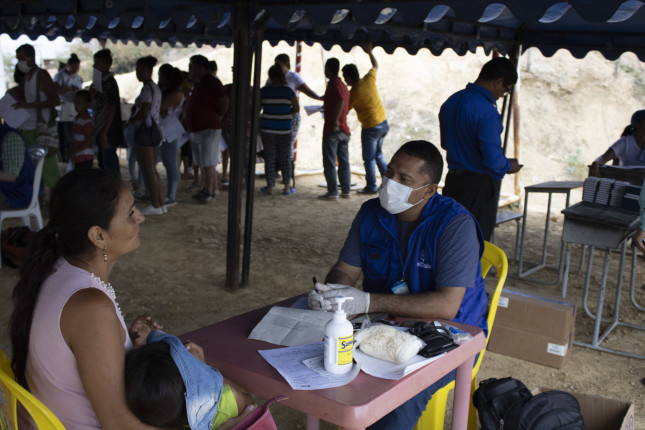
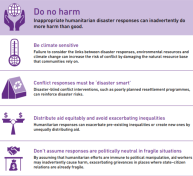 Humanitarian need is increasing. Crises are becoming more complex through the interactions between climate change, disasters, and conflicts. Not only are humanitarian crises on the rise, but the nature of crises is changing, largely due to climate change-driven extremes such as floods, droughts and typhoons. Over
Humanitarian need is increasing. Crises are becoming more complex through the interactions between climate change, disasters, and conflicts. Not only are humanitarian crises on the rise, but the nature of crises is changing, largely due to climate change-driven extremes such as floods, droughts and typhoons. Over 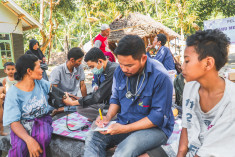 As disasters have changed over the years, so must the personnel who manage these crises.
As disasters have changed over the years, so must the personnel who manage these crises.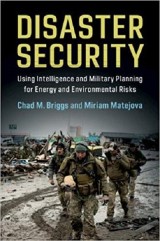 How do we plan for disasters that have never occurred before?
How do we plan for disasters that have never occurred before? 